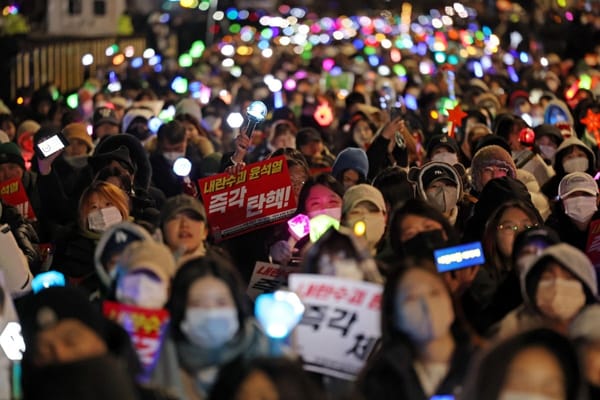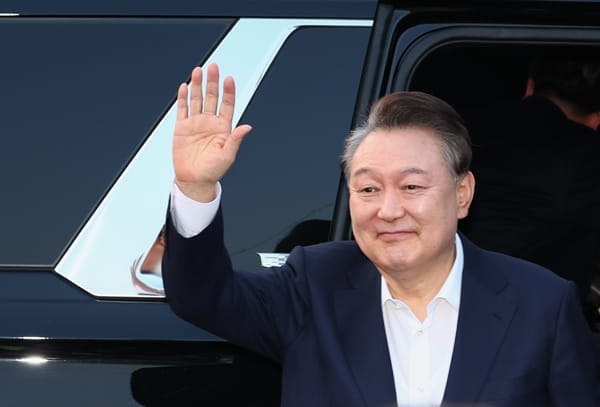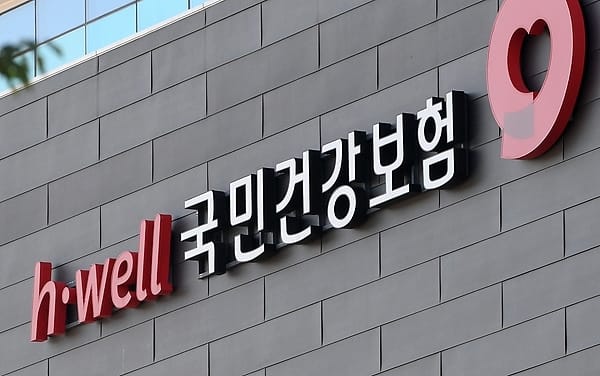Photo: Advertisement for Hyeon U-jin, the highest earning math teacher in South Korea. Credit: Megastudy.
South Korea’s private education industry - the infamous hagwon 학원 system - is big business. Even with the country’s low birth rate resulting in fewer students each year, South Korea’s parents spent KRW 26t (USD 20.3b) on private education in 2022, setting a new high.
Today, South Korea’s private education industry resembles the country’s entertainment industry, with superstars earning astronomical sums while determining the fate of their companies. Top-ranked teachers can earn as much as KRW 3 to 4b (USD 2.3m to 3.1m) per year. Hyeon U-jin 현우진, considered to be the highest-paid math teacher in South Korea, earned an estimated KRW 30b (USD 23.3m) last year. When Hyeon said in June 2022 that he might not re-sign with his company, Megastudy 메가스터디, the company’s share price immediately dropped by 9%. (Hyeon did ultimately re-sign later that year.)
South Korean parents willingly pay for these star tutors because their analysis of the all-important College Scholastic Aptitude Test 대학수학능력시험 is exceedingly sophisticated. Rather than simply offering test study tips and mnemonics, these celebrity tutors - and their dedicated research staffs - deconstruct the CSAT question-by-question, analyzing historical trends and Ministry of Education 교육부 directives, to produce predictive lesson plans and materials tailored for students at different levels, all while delivering entertaining lectures to keep students engaged.
This week, President Yoon Suk-yeol 윤석열 대통령 threatened to upend this delicate ecosystem. Matching the sophistication of the private education industry, the Ministry of Education carefully calibrates the CSAT’s level of difficulty each year by holding two official mock exams in June and September before the annual exam in November. Ignoring this, Yoon directly ordered the Ministry of Education to make the CSAT. When this June’s mock exam did not prove as easy as he had hoped, Yoon sacked the Ministry of Education official responsible for college admissions.
Yoon’s abrupt demand arose in part from the widespread notion that a difficult CSAT forces parents to spend money on private education. It also came out of the longstanding conservative complaint that the hagwon industry is a financial wellspring for liberals, as the first generation of star tutors were progressive teachers fired from schools for protesting the 1980s dictatorship who had to turn to tutoring for a living. Right-wing pundits have claimed that a “cartel” of star tutors has been pushing the CSAT difficulty level past the point where students cannot do well in the exam by simply studying what the school teaches and must turn to private education.
The claim is unfounded: CSAT questions have always been at the difficulty level of public school textbooks, as the questions are often composed by the very educators who wrote the textbooks. It is also untrue that an easier CSAT would tamp down demand for private education, as an easier exam would make exam scores more a matter of luck than of knowledge. High school students who fared poorly on an easier CSAT would be motivated to try their luck again the following year - and, having already graduated high school, would turn to more classes at hagwon, which already offer well-developed curricula for repeat test-takers.








